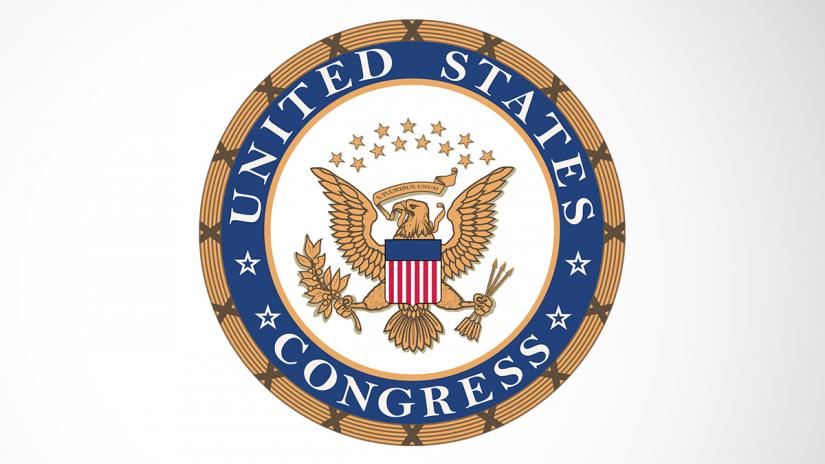 The Trump Administration from the US Congress has sought $30 million for its new Bay of Bengal security initiative to help it provide foreign military financing to three South Asian countries including Bangladesh.
The Trump Administration from the US Congress has sought $30 million for its new Bay of Bengal security initiative to help it provide foreign military financing to three South Asian countries including Bangladesh.
Sri Lanka and Maldives are the other two countries, Alice G Wells Senior State Department Official for South and Central Asian Affairs has told House Foreign Affairs Subcommittee for Asia, the Pacific, and Nonproliferation in a prepared statement on Wednesday (Jun 12).
This Bay of Bengal initiative is in addition to the $64 million already announced by the Trump Administration for regional activities to support infrastructure growth and connectivity.
“We request that Congress support the Department’s new security cooperation program in South Asia, the Bay of Bengal Initiative, with $30 million in foreign military financing that will build maritime and border security capacity for Sri Lanka, Bangladesh, and Maldives,” Wells said.
The sub-committee of the House Foreign Affairs Committee is scheduled to hold a hearing “US Interests in South Asia and the FY 2020 Budget” on Thursday. “We also request $64 million for regional activities to support raising infrastructure standards, supporting regional energy and digital connectivity, and bolstering cyber security,” she said in her prepared remarks submitted to the Congressional sub-committee.
Both the initiatives are aimed at countering the Chinese influence in South Asia, in particular these three countries. “We cannot allow China, or any other country, to subvert our partners through unsustainable infrastructure projects that push economies into unsustainable debt, or by contributing to an erosion of transparency and democratic norms,” she said.
The Department continues to explore options for providing additional resources to support the Indo-Pacific Strategy in line with this request, and if available it intends to return to Congress to discuss them, she said.
Wells told the lawmakers that the Trump Administration has proposed for Bangladesh the largest civilian assistance request in the Indo-Pacific region. Moreover, Bangladesh is an increasingly important market for U.S. companies, with nearly 170 million people and sustained annual GDP growth of over six percent.
At the same time, the State Department continues to support civil society and labor groups throughout Bangladesh with diplomatic engagement and foreign assistance.
“We have publicly noted concerns regarding Bangladesh’s December 30 election and the closing of democratic space for political opposition, media, and civil society. We raise our concerns with the Bangladeshi authorities at each opportunity,” she said.
Bangladesh, wells, noted continues to host over one million Rohingya refugees, providing shelter and support to a population that escaped ethnic cleansing from neighboring Burma. The US assistance request for Bangladesh includes substantial funding for refugee hosting communities.
The Department of State and USAID have provided more than $494 million in humanitarian assistance to support victims of the crisis since August 2017, of which more than $451 million was for the Rohingya refugee and host community response in Bangladesh.
According to Wells, with the Asia Reassurance Initiative Act the Trump Administration stands together with Congress by signaling to the region that America, itself an Indo-Pacific nation, is committed to promote mutual prosperity. The Department requests $468 million for South Asia for the fiscal 2020 which increases regional economic and security assistance, as well as development funding for India and Maldives. This more than doubles US’s fiscal 2019 request, she added.
In the Indo-Pacific, the Administration is committed to ensuring a rules-based order, with free and open commerce, freedom of navigation, democracy, and the peaceful resolution of disputes, Wells said. These principles have helped to improve living standards for half of the world’s population living in the Indo-Pacific region, and they remain critical for the region’s long-term future, she said.
 National
National
30750 hour(s) 42 minute(s) ago ;
Morning 01:36 ; Saturday ; Apr 20, 2024
Trump Admin seeks $30m for its Bay of Bengal security initiative
Send
Lalit K Jha, Washington
Published : 09:05, Jun 13, 2019 | Updated : 09:06, Jun 13, 2019
Published : 09:05, Jun 13, 2019 | Updated : 09:06, Jun 13, 2019
0 ...0 ...
/pdn/
Topics: Top Stories
- KOICA donates medical supplies to BSMMU
- 5 more flights to take back British nationals to London
- Covid19: Rajarbagh, Mohammadpur worst affected
- Momen joins UN solidarity song over COVID-19 combat
- Covid-19: OIC to hold special meeting
- WFP begins food distribution in Cox’s Bazar
- WFP begins food distribution in Cox’s Bazar
- 290 return home to Australia
- Third charter flight for US citizens to return home
- Dhaka proposes to postpone D8 Summit
Unauthorized use of news, image, information, etc published by Bangla Tribune is punishable by copyright law. Appropriate legal steps will be taken by the management against any person or body that infringes those laws.
Bangla Tribune is one of the most revered online newspapers in Bangladesh, due to its reputation of neutral coverage and incisive analysis.
F R Tower, 8/C Panthapath, Shukrabad, Dhaka-1207 | Phone: 58151324; 58151326, Fax: 58151329 | Mob: 01730794527, 01730794528


